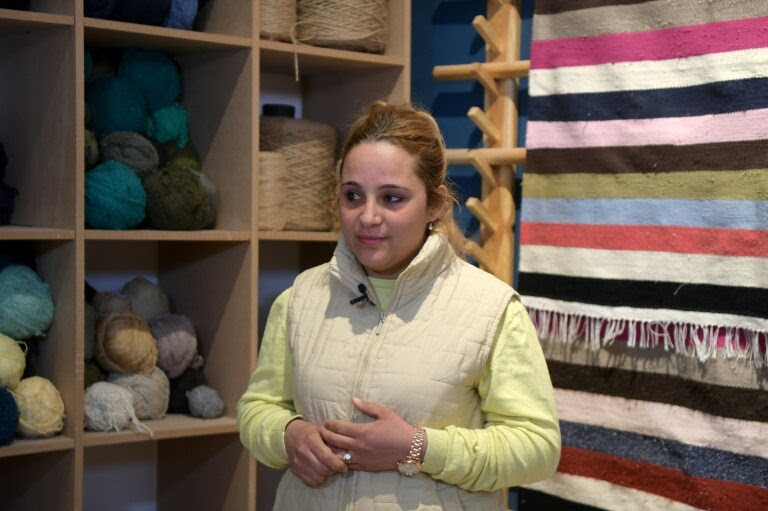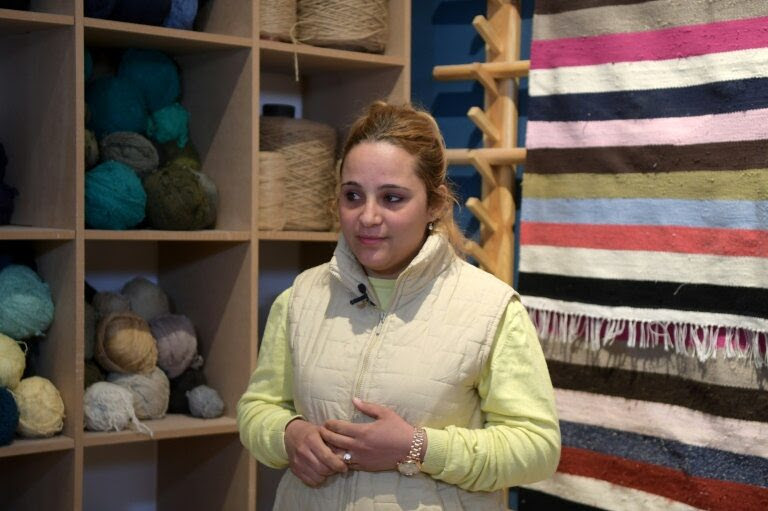
A Tunisian worker frays a pair of jeans that will soon be a designer carpet. This unique experience which is an ecological act before the hour, concerns Tunisian mothers who consist in recycling clothes, is in the middle of a social and solidary project which spread all over Tunisia.
Najet learned to weave as a child with her mother, quilts or kashabiyas (jellabas)”, she has, 52 years. Today, she devotes herself to kilims: “I earn a good living and I work at home.
Initially, it was a family order with her nephew, Mehdi Baccouche, a 33-year-old Franco-Tunisian, who had the idea in 2014 to order carpets for friends. From a simple page on Facebook (“El Mensej”, the loom), the project grew, giving birth in 2016 to the association Shanti, which buys the carpets in advance and takes care of the resale.

To date, it supports or brings an income to 12 craftswomen in the poor oasis of Nefta, 500 km south of Tunis. By inserting the wool in the weft, Najet shows the patterns with pride. “It comes out of my imagination, I prepared lines of colors and they (Shanti) have accepted.
All the old clothes, the old t-shirts or the socks that serve as raw material for a beautiful black, beige and gold carpet, come from the local market.
The nephew, Shanti, has also opened a haberdashery in Nefta where craftswomen get free supplies of multicoloured balls, from second-hand clothes or unsold industrial goods. No risk of shortage: the Tunisian textile sector has 1,600 manufacturers, and subcontractors of European brands.

The great idea of Shantiest to have created the haberdashery “makes a huge difference”. Before, “the craftswomen had to find and pay for all the raw material, earning 40 or 50 dinars (12 to 15 euros) with a kilim.
The income is correct, as each standard carpet (1.80 m by 2) now brings them 120 dinars. The association also improves their working space, for example by installing air conditioning in this torrid region in summer.
In relation to this new activity, these women also see their social role revalorized. “People look at them differently and training with designers gives them an opening to the outside world,” according to Fatima.
It is clear that the start was difficult and that they had to face mockery. “This popular art” of recycling thrift store items was called “old ladies’ work.” “It was important to show that you can be a woman who has no education, who does not know how to use the Internet, but who can have an activity and live from it,” he said, recalling the low employment rate of women in the South.




